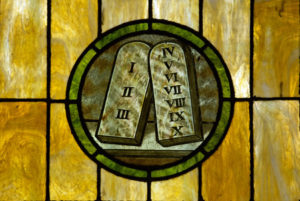 In an interesting article in the October 2017 issue of First Things. columnist Mark Bauerlein explains that we currently live in a society where younger generations are a-literate, meaning that they can read, but they don’t read much of anything. A 2012 Survey of Public Participation in the Arts found that only half of 18- to 24-year-olds read a book during leisure hours during the preceding 12 months.
In an interesting article in the October 2017 issue of First Things. columnist Mark Bauerlein explains that we currently live in a society where younger generations are a-literate, meaning that they can read, but they don’t read much of anything. A 2012 Survey of Public Participation in the Arts found that only half of 18- to 24-year-olds read a book during leisure hours during the preceding 12 months.
What does that mean for the church? Quite a lot, actually. If no one is reading anything, and if the basis of our growing in faith is built on reading, learning and inwardly digesting the Word of God, then that is a problem.
If they are not reading, how are people being fed words and getting information, then? Our lives are filled the sound bites and short quotes and pithy statements on Facebook and Twitter and on TV scrolls. But are we getting deeper into the meaning behind these words? Most likely not.
The old models of in-depth Bible studies are lost on younger generations, and have led, in general, to a decline in Bible class attendance on Sunday mornings.
So what is a church to do to appeal to the increasingly alliterate society. One thought I have is that the church needs to be more and more present on social media platforms with intriguing words of Scripture that then start a conversation thread and a larger discussion moderated by leaders in the church of the meaning and impact of the Word of God on our everyday lives. That is one way of reaching the younger generations with the Word in the places where they are reading and receiving information.








